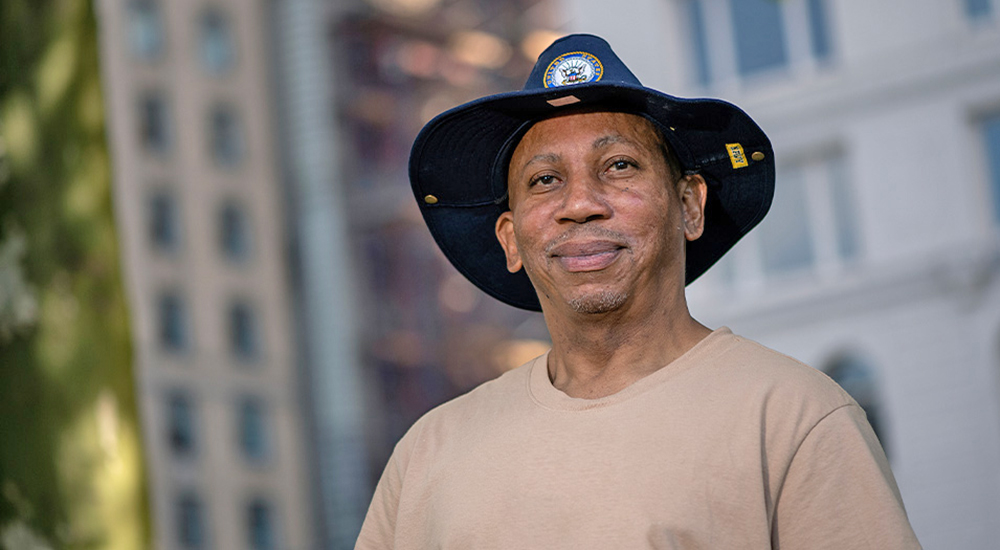There are ways to honor your service and uphold military principles as a Veteran while also taking care of yourself.
Certain words and concepts have shaped the U.S. military since its founding. In fact, the men and women who fought in the Revolutionary War likely would still recognize the oath taken by those who enlist today.
Powerful words can inspire people to fight for a common cause and in the case of our country, to gain and preserve freedom. But the words meant to define what it means to be a soldier, marine, sailor, airman or coast guardsman can also make some Veterans think twice about reaching out for help.
Your service to your unit and our nation constantly required you to put others’ needs above your own. As a result, you may have been forced to “suck it up,” ignore the pain or “drive on.” No matter what you’ve been through, whether you’ve deployed or not, whether you’ve seen combat or not, you’ve earned the support and resources VA provides.
Oaths focus on honesty and allegiance
Because it’s probably been a while since you took the Oath of Enlistment (or Oath for Commissioned Officers), I’ll remind you what it currently says:
“I, _____, do solemnly swear (or affirm) that I will support and defend the Constitution of the United States against all enemies, foreign and domestic, that I will bear true faith and allegiance to the same and that I will obey the orders of the president of the United States and the orders of the officers appointed over me, according to regulations and the Uniform Code of Military Justice. So help me God.”
You probably remember—as I did when I took mine—the enormity of what you were committing to. These aren’t statements you make lightly. You understand you’re representing your country and making a pledge to something bigger than yourself. You take it seriously and know these words will guide you for years, even beyond your time in the service.
Military core values go beyond oaths
No matter your branch, there were other words and concepts that served as a basis for your time in the military. What do you think about now when you hear honor, pride, integrity, responsibility, accountability, courage and commitment?
You heard these words throughout your service and you likely still live your life by them. I’d like to help you reframe these words so you feel more comfortable asking for support when you want or need it:
- Honor. You had to show your peers and your unit that you were dependable. The unit needed you to be ready at all times, especially when it was inconvenient. Part of dependability is that you keep yourself fit and healthy enough to take care of yourself. There’s no shame in getting help if you need it. Paying attention to your own well-being can keep you healthy so you can take care of others.
- Pride. You should be proud of your service, but don’t let pride get in the way when you need a helping hand.
- Integrity. Be honest with yourself. If you’re struggling, let others know. When people lose loved ones to suicide, they often say, “I had no idea they were hurting this much.” Open communication is key to finding the right support when you need it.
- Responsibility. Take responsibility for yourself and those you care about. Realize a crisis can happen at any time. Familiarize yourself with the resources we offer so you can be prepared.
- Accountability. Take inventory of yourself and what’s affecting you, and always have an action plan. Be accountable to others and to yourself. Are you pretending to be OK? Do you know for sure your Veteran friend is OK? Don’t assume.
- Courage and commitment. Take that first step. This might be doing something―maybe counseling or asking a friend for help―that you thought you would never do. It could end up changing your life. Follow through on your responsibilities and what’s expected of you for your own safety.
Stay true to yourself and be your best self
It’s not easy to compromise on values, but you don’t have to sacrifice your personal code of conduct to stay healthy and safe. Seeking help doesn’t detract from these values, and there’s no dishonor in being human.
VA is here to help you navigate and overcome whatever you’re facing. We can help you figure out where to start and how to find local resources. We also offer immediate crisis support.
The caring, qualified responders at the Veterans Crisis Line are ready to listen and help 24/7. Dial 988 then press 1, chat at at the Veterans Crisis Line, or text 838255.
Crisis isn’t permanent, but it can feel overwhelming. There’s no shame in asking for help. Millions of Veterans have reached out for the support they’ve earned and you can, too.
Topics in this story
Link Disclaimer
This page includes links to other websites outside our control and jurisdiction. VA is not responsible for the privacy practices or the content of non-VA Web sites. We encourage you to review the privacy policy or terms and conditions of those sites to fully understand what information is collected and how it is used.
More Stories
Face it, muscle tension is not good for your health, but you can do something about it in 15 minutes!
For a group of Veterans at the Central Virginia VA Health Care System, Parkinson’s care includes a regular check-in to see what they’ve built with Legos.
Daughter and son-in-law find a diary of her father's life as a prisoner of war written on toilet paper.







To HELL with liar’s and the liar VA,you say one thing but do just the opposite,you always try to make it look like it was our fault we got injured but never punish a physician that played God with your life, I want my fng eyesight back that Peter Chung took away from me.live up to the core values you hypocrites preach.damn you..
Mike, I don’t know your story, but you can apply for a service connected condition for your eyesight just like you would if you were injured in service.
When I got out of the military and found out that my dam wife married another man besides me and the state of Utah let her get away with it now I don’t have a family or kids what would you do about it ? So I have to move our of the state and the military didn’t give a sh-t about me or my family so why should I care about the states
I totally agree with that yea I have a 30% but I really believe I should be at 100
I been having abdominal pain since I got out the military in 1987 , Been going to doctors ever since and they could never find anything . So my last doctor told me to go to the V A. Since I was at Camp Lejeune and maybe they will know .. Been doing test and seem like they look and say I have this than change their minds .. Because it might be connected .. I would love not to be in pain all the time .. I know there’s something wrong and they don’t want to say ,,
This article really helps ! It’s easy to forget to take care of your self.
Thanks